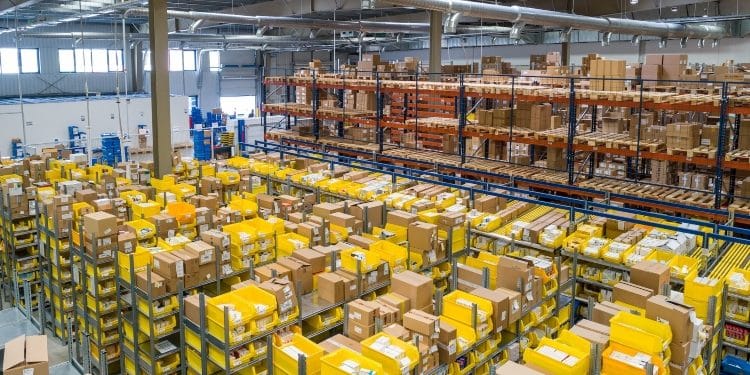Amazon FBA can be a very useful way for British online retailers to fulfil orders rapidly in the UK, especially if they usually dropship goods to their customers directly from suppliers in China, Korea or India, for example. However, Amazon FBA isn’t for every e-commerce operator. What is it, why might you consider using the service and what are its potential drawbacks? Read on to find out.
What Is Amazon FBA?
FBA stands for fulfilment by Amazon. Under the scheme, when you sell goods through an Amazon account, orders are typically sent from the retailer’s warehouse or stockroom. With Amazon FBA, sellers effectively rent space in an Amazon warehouse in the UK. When an order is placed through Amazon for one of your products that is in the warehouse, Amazon will pick it, package it and send it out to your customer automatically for you. You can order goods from your supplier and have them stored by Amazon ready for when orders come in.
What Are the Advantages of Amazon FBA?
Unlike dropshipping from the Far East, which typically takes 5 to 6 weeks for items to arrive, having them in the UK, stored and ready to go, means being able to get orders fulfilled within 24 to 48 hours. It is, therefore, ideal for fast-moving lines that are continually being ordered. You can replenish your stock when it is getting low and Amazon will even advise you when this is the case.
With Amazon FBA, your sales revenues are deposited directly into your bank account without you needing to worry about packaging, distribution costs or even maintaining a warehouse on your own. Other than the speed of the service, choosing Amazon FBA as a business model means being able to piggyback on the internet giant’s brand reputation, something that smaller e-commerce operators tend to like.
What Drawbacks Are There With Amazon FBA?
When you send goods to an Amazon warehouse under the FBA scheme, there are lots and lots of technicalities to overcome. Given that most online retailers that will use the service will be shipping goods from overseas to UK-based warehouses, you will often be reliant on your supplier to make sure the rules are met. According to Barrington Freight, a freight forwarding firm that handles Amazon FBA shipments on behalf of British clients, paying for some expertise with both UK customs clearances and Amazon’s regulations is worth it. However, it can also make more sense to bypass the FBA service altogether and dropship directly in some cases.
Another problem with Amazon FBA is that you have to pay for the service. Amazon won’t let you take up space in its warehouse for nothing, after all. The costs may be quite small due to the economy of scale but they can build up depending on how much you stock and how long it remains unsold. Please also note that Amazon branding – not your own – will feature on each onward shipment, something that puts some e-tailers off altogether. Finally, Amazon makes it easier to return goods than most online retailers would like so this needs to be borne in mind, too.
David Prior
David Prior is the editor of Today News, responsible for the overall editorial strategy. He is an NCTJ-qualified journalist with over 20 years’ experience, and is also editor of the award-winning hyperlocal news title Altrincham Today. His LinkedIn profile is here.




![7 Best POS Software in the UK [2026 Edition]](https://todaynews.co.uk/wp-content/uploads/2026/02/7-Best-POS-Software-in-the-UK-2026-Edition-360x180.png)








































































